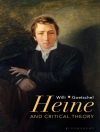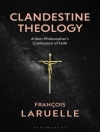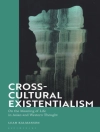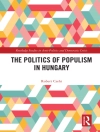Zhuangzi and the Becoming of Nothingness offers a radical rereading of the Daoist classic
Zhuangzi by bringing to light the role of nothingness in grounding the cosmological and metaphysical aspects of its thought. Through a careful analysis of the text and its appended commentaries, David Chai reveals not only how nothingness physically enriches the myriad things of the world, but also why the
Zhuangzi prefers nothingness over being as a means to expound the authentic way of Dao. Chai weaves together Dao, nothingness, and being in order to reassess the nature and significance of Daoist philosophy, both within its own historical milieu and for modern readers interested in applying the principles of Daoism to their own lived experiences. Chai concludes that nothingness is neither a nihilistic force nor an existential threat; instead, it is a vital component of Dao’s creative power and the life-praxis of the sage.
表中的内容
Acknowledgments
Introduction
1. Nothingness and Dao: A Time before Being
The Nature of Nothingness
The Language of Nothingness
The Oneness of Dao
Returning to Dao, Overcoming Nihilism
Conclusion
2. Dao, the One, and the Question of Being
Original Being
qua the Thing
The Thing’s Unveiling
The Trace and the Traceless Sage
Wandering in the Harmony of Dao
Conclusion
3. Dao and the Time of Nothingness
Dao and Cosmological Time
Human Measured Time
Conclusion
4. Zhuangzi and the Life Praxis of Being Useless
Useless by Proxy and the Proxy of Usefulness
Learning from the Useless Tree
Conclusion
5. Discovering Dao through Self-Forgetting
The Mundaneness of Forgetting
Losing Oneself in Forgetfulness
Sitting in Forgetfulness
A Taste of Spiritual Freedom: Composing the Heart-Mind
Conclusion
6. Wandering Carefree in Nothingness
Cosmological Freedom
Three Heavenly Principles of Freedom
Nothingness the Great Harmonizer
Freedom as Carefree Wandering
Conclusion
Conclusion
Notes
Bibliography
Index
关于作者
David Chai is Assistant Professor of Philosophy at the Chinese University of Hong Kong.












